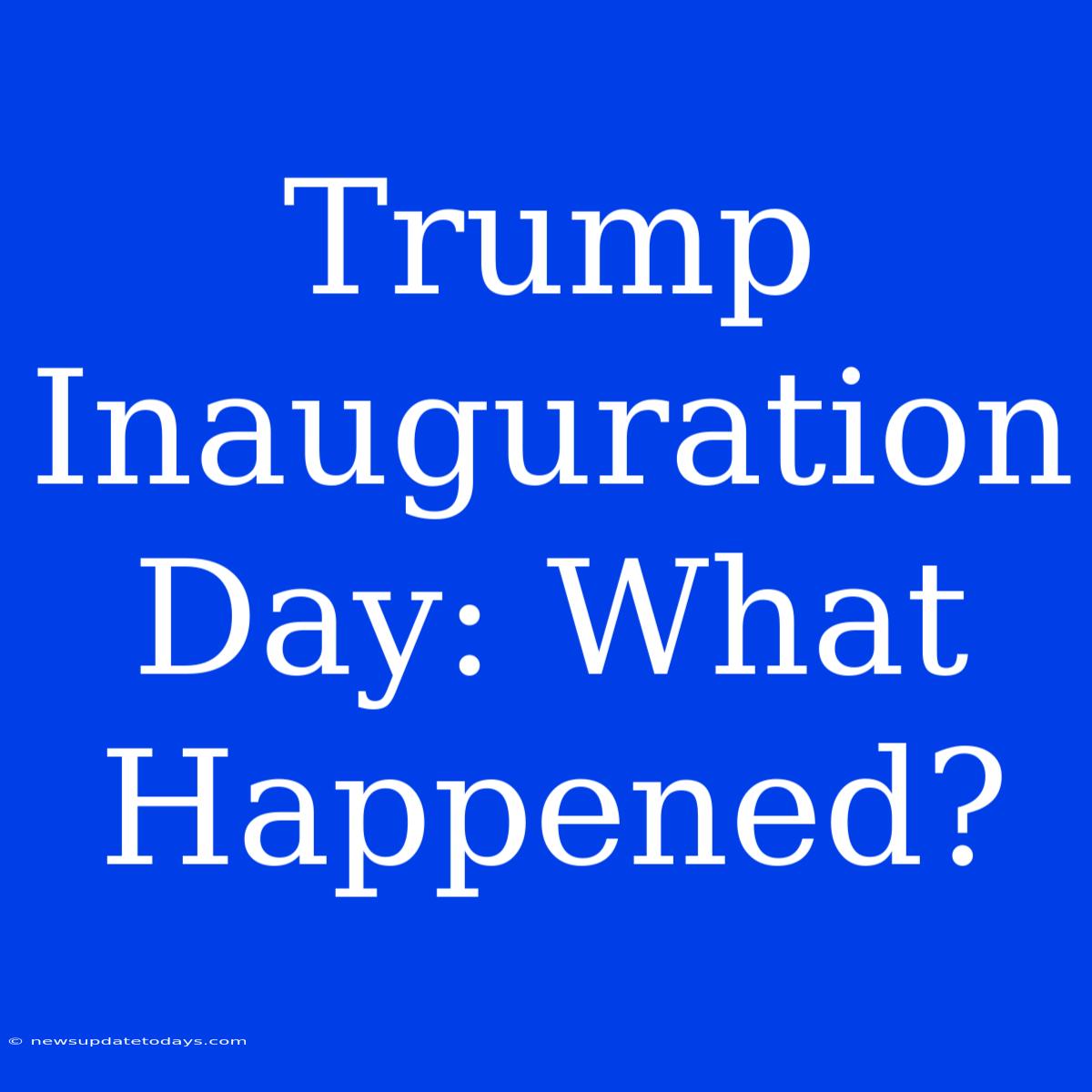Trump Inauguration Day: A Look Back at January 20, 2017
Donald Trump's inauguration as the 45th President of the United States on January 20, 2017, was a day marked by both celebration and significant controversy. This article delves into the key events, the atmosphere, and the lasting impact of that historic day.
A Day of Contrasting Views
The inauguration ceremony itself drew a massive crowd, though estimates varied wildly depending on the source, fueling immediate debate about attendance figures. While supporters celebrated Trump's victory and the promise of his "America First" agenda, protests erupted across the country, reflecting deep divisions within the American populace.
The event featured traditional elements, including the swearing-in ceremony, inaugural address, and parade. However, the tone and content of Trump's speech, with its populist themes and direct address to "the forgotten men and women of our country," set a distinct tone for his presidency. He emphasized themes of nationalism, economic revitalization, and a rejection of established political norms.
Key Moments and Controversies
Several specific events from that day continue to be discussed:
-
The Inaugural Address: Trump's speech focused on themes of national renewal, promising to "make America great again." The rhetoric was notably populist and nationalistic, departing from the more conciliatory tones of previous inaugural addresses. The speech itself became a subject of intense analysis, with critics focusing on its perceived divisive language and promises.
-
The Crowd Size Debate: The size of the inauguration crowd became an immediate point of contention, with conflicting reports and photos emerging. The Trump administration’s attempts to downplay the low attendance figures compared to previous inaugurations further fueled criticism.
-
The Women's March: Simultaneously, the Women's March on Washington, one of the largest single-day protests in US history, took place, demonstrating widespread opposition to Trump's presidency and his policies. This event underscored the deep societal divides present at the start of his term.
-
The Alternative Inauguration: Alternative events, including the "Resist Trump" rally, took place across the nation, symbolizing the widespread resistance to Trump’s presidency from diverse communities and organizations. These demonstrated a level of organized opposition unseen in previous inaugurations.
Long-Term Implications
Trump's inauguration day marked not only the start of his presidency but also the beginning of a period of heightened political polarization. The events of the day set the stage for the controversies and challenges that characterized his four years in office. The contrasting views expressed on that day – between jubilant supporters and vocal protestors – reflected a fundamental divide that continued to shape the political landscape throughout his term.
The day serves as a significant historical moment, offering a valuable case study in the complexities of presidential transitions and the enduring power of differing political ideologies in shaping American society. Understanding the events of January 20, 2017, provides vital context for comprehending the political climate of recent years and its ongoing impact.

